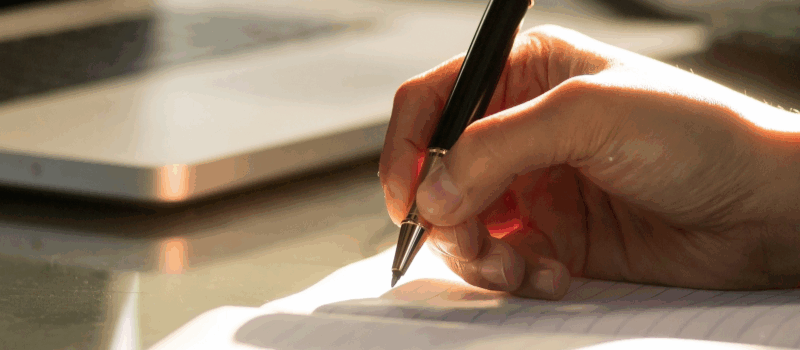Clifford Gouldson Lawyers Managing Director Ben Gouldson gives some quick insights into Navigating the Legal Limits of Patent and Trade Marks Practice
Keep reading to explore the full breakdown.
The Vital Role of Patent & Trade Marks Attorneys
Patent and Trade Marks Attorneys (PTAs) play a vital role in the protection and management of intellectual property (IP). The diverse nature of work means that PTAs are often exposed to legal aspects of the field.
Although courts and other bodies recognise the importance of PTAs, there are strict statutory boundaries to these roles that must be followed. Where work is done outside the authorised scope of PTAs, serious consequences can result. Therefore, it is essential to understand the limits that exist when dealing with the legal aspect of intellectual property.
When is it overstepping?
Both the Trade Marks Act 1995 (Cth) and Patents Act 1990 (Cth) offer special privileges to PTAs, which include providing intellectual property advice to clients. This encompasses advice related to patents, trade marks, designs or plant breeder’s rights. However, under section 200(3) of the Patents Act and section 229(4) of the Trade Marks Act, PTAs are strictly unauthorised to prepare a document to be issued from or filed in a court or to transact business, or conduct proceedings, in a court.
This involves drafting and preparing documents to be filed or used in court proceedings. This was emphasised in the case of Titan Enterprises (Qld) Pty Ltd v Cross [FCA] 1241, whereby it was held that offering intellectual property advice does not cover procedural services in litigation.
Additionally, PTAs are also restricted from the provision of general legal services which go beyond giving advice regarding the validity, infringement, registration, and prosecution of patents, trade marks, designs, plant breeder rights and related intellectual property rights. This advice is recognised as privileged, similar to lawyer-client privilege, but only for communications regarding intellectual property matters. So, unless PTAs are separately admitted as lawyers and holding practising certificates, they must not provide legal advice.
What are the consequences?
The professional standards and requirements of PTAs are outlined in the Code of Conduct for Trans-Tasman Patent and Trade Marks Attorneys 2018 (the “Code of Conduct”). More guidance is set out in the Trans-Tasman IP Attorneys Board and by the Institute of Patent and Trade Marks Attorneys (IPTA). Specifically, PTAs must ensure they act with the required competence and behaviour.
The Board is able to decide whether PTAs comply with the Code of Conduct and can bring proceedings before the Trans-Tasman IP Attorneys Disciplinary Tribunal. Specifically, the Board determines whether the PTA has engaged in professional and/or unsatisfactory professional misconduct. Professional misconduct includes conduct that is a “substantial or consistent failure” to meet reasonable standards expected of PTAs, and unsatisfactory professional conduct involves conduct of a PTA that lacks the appropriate “competence, diligence and behaviour” required.
Consequences for breaching the Code of Conduct can include suspension or cancellation of an attorney’s registration, as well as reputational damage.
Performing unauthorised legal work also exposes PTAs to consequences under section 24 of the Legal Profession Act 2007 (Qld).
To illustrate, in the Western Australian case of Legal Practice Board v Giraudo [2010] WASC 4, a patent attorney was held to have gone beyond his role when he performed legal work such as preparing documents for a court proceeding.
In summary:
PTAs play a vital role in protecting and managing intellectual property, but it’s important to remain clear on the limits of their statutory powers. While PTAs will inevitably encounter legal aspects in their work, understanding the boundaries helps preserve professional standards and client confidence.
At Clifford Gouldson Lawyers, our Intellectual Property team regularly works alongside PTAs to ensure their clients are fully supported when matters move beyond the scope of attorney practice. We have an established trade mark prosecution practice servicing clients across Toowoomba and the Darling Downs, and are well placed to assist when legal expertise is required. We respect PTAs client relationships, and work to enhance your relationships by supporting your intellectual property service delivery where general legal work and court work is required. Whether it be assignments of intellectual property, licences, commercialisation agreements, research agreements, material transfer agreements, or other commercialisation agreement drafting, or assistance in litigation and dispute resolution, we are well placed to assist.
If you’d like to see how we can support your business to support your clients, please contact our Intellectual Property + Technology lawyers for an obligation-free discussion at any time.
For further information, contact Ben Gouldson, Director.


 Qld Govt Seeking Feedback on Sunset Clauses
Qld Govt Seeking Feedback on Sunset Clauses